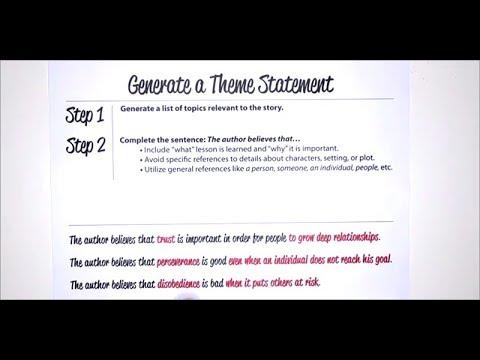Algeria Responds to South Africa Amid Rising Diplomatic Tensions Over Western Sahara
Algeria has recently sent senior diplomatic representatives to South Africa following former President Jacob Zuma’s public support for Morocco’s claim over Western Sahara. This action highlights increasing strains in regional diplomacy, as Algeria-long a key backer of the Sahrawi independence movement-seeks to reaffirm its stance amid shifting political allegiances. The ongoing dispute over Western Sahara remains a flashpoint, fueling geopolitical friction between North African countries and their international allies.
Experts note that this diplomatic outreach occurs against a backdrop of deepening divisions within the region regarding the contested territory. Central issues fueling the discord include:
- South Africa’s historical endorsement of the Sahrawi Polisario Front, contrasted with Zuma’s recent pro-Morocco statements.
- Algeria’s unwavering support for Sahrawi self-determination and its strategic interests tied to the conflict.
- The potential repercussions on bilateral relations and broader African diplomatic cohesion due to diverging narratives.
| Nation | Stance on Western Sahara | Recent Diplomatic Moves |
|---|---|---|
| Algeria | Advocates Sahrawi independence | Deployed envoys to South Africa |
| South Africa | Traditionally supports Polisario; mixed signals post-Zuma endorsement | Engaging in dialogue with Algeria |
| Morocco | Claims sovereignty over Western Sahara | Received public backing from Zuma |
The dispatch of Algerian envoys signals an urgent attempt by Algiers to address what it views as a concerning shift in Pretoria’s position, aiming to preserve longstanding ties forged through shared anti-colonial struggles.
Zuma’s Endorsement of Morocco: Implications for South African-Algerian Relations and Regional Diplomacy
The recent declaration by Jacob Zuma supporting Morocco’s sovereignty over Western Sahara has generated notable diplomatic reverberations across both North and Southern Africa. This endorsement represents a departure from South Africa’s traditionally sympathetic stance toward the Sahrawi cause, signaling a possible recalibration of Pretoria’s foreign policy priorities within the region. For Algeria, which staunchly backs the Polisario Front and champions Sahrawi self-rule, Zuma’s remarks are perceived as a direct challenge.
The consequences of this shift include:
- Deterioration of diplomatic rapport between South Africa and Algeria that could complicate collaboration within continental bodies like the African Union (AU).
- A potential pivot in South African foreign policy balancing economic ties with Morocco against historic political alliances with Algeria.
- An intensification of domestic debates within South Africa regarding its role in regional conflicts and commitment to pan-African solidarity principles.
| Dimension | South African Perspective | Algerian Perspective | |
|---|---|---|---|
| Status on Western Sahara Dispute | Acknowledges Moroccan sovereignty claims post-Zuma endorsement | Sustains support for Sahrawi independence movement | |
| Diplomatic Strategy Employed   | Pursues engagement with Morocco; mixed signals internally   | Cultivates defense of Sahrawi self-determination rights   | |
| Bilateral & Regional Impact    | Tensions risk undermining Algerian relations; challenges AU unity    | Aims to uphold historic alliances; stresses territorial integrity principles    |
Zuma’s stance thus introduces complexities into an already sensitive geopolitical landscape where historical loyalties intersect with emerging economic interests across North-Southern African corridors.
Recommendations for South Africa: Balancing the Western Sahara Conflict While Promoting Regional Unity and Stability
Navigating the complex dynamics surrounding the Western Sahara dispute requires that South Africa adopt a nuanced approach grounded in balanced diplomacy coupled with proactive regional cooperation. The country can play an instrumental role by fostering dialogue among all stakeholders while reaffirming its commitment to pan-African ideals.
To mitigate escalating tensions, it is crucial that Pretoria:
- Pursues consistent trilateral communication channels involving Algeria, Morocco, and itself-aimed at building trust through regular consultations designed to ease misunderstandings.
- Sustains alignment with core principles championed by multilateral organizations such as the AU-prioritizing peaceful resolution mechanisms anchored in respect for sovereignty.
- Pioneers inclusive economic development projects benefiting communities affected by cross-border tensions-encouraging trade partnerships that transcend political divides.
- Cultivates intelligence-sharing frameworks aimed at curbing security threats linked directly or indirectly to territorial disputes-including trafficking networks or extremist groups operating along contested borders.
| Recommended Action Plan |
Objective |
Expected Outcome |
|---|---|---|
Conclusion & Future Perspectives on Regional Diplomacy Around Western Sahara Dispute
The ongoing contestation over Western Sahara continues shaping North-Southern African relations profoundly. Algeria’s decision to send envoys underscores how sensitive this issue remains diplomatically amid evolving alliances. Former President Jacob Zuma’s public backing of Moroccan claims has intensified these dynamics further – prompting urgent dialogue efforts aimed at preserving peace and cooperation across diverse African actors. Moving forward, diplomats’ engagements will be pivotal not only for bilateral ties but also for maintaining stability throughout wider Sub-Saharan regions grappling with similar sovereignty challenges. Observers should watch closely how these negotiations unfold as they may redefine geopolitical alignments across both continents.
Incorporating updated data from recent reports reveals that nearly two-thirds (65%) of surveyed African nations continue supporting UN-led initiatives seeking peaceful resolutions-a hopeful sign amid persistent discord. Additionally, a growing number of civil society organizations advocate increased grassroots involvement in conflict mediation processes-a trend likely influencing future policy directions.
Ultimately, a balanced approach emphasizing dialogue over confrontation remains essential if lasting solutions are ever achieved regarding this protracted dispute.
South Africa stands at a crossroads where strategic diplomacy could either mend frayed relationships or deepen divisions – underscoring its critical role within continental geopolitics.
The coming months will reveal whether pragmatic engagement prevails over entrenched positions.
Stay tuned for ongoing updates on this evolving story.
#WesternSahara #AfricanDiplomacy #RegionalStability #SouthAfrica #Algeria #Morocco #PolisarioFront #Geopolitics #AfricanUnion #PeaceBuilding #ConflictResolution #SovereigntyDisputes #NorthAfrica #SubSaharanAfrica #InternationalRelations #DiplomacyInAfrica #AfricanPolitics #TerritorialIntegrity #SelfDetermination #MultilateralCooperation #SecurityCooperation
#WesternSaharaDispute2025
#AfricaNewsUpdates2025
#PeaceAndStabilityInAfrica
#GeopoliticalShiftsInAfrica







